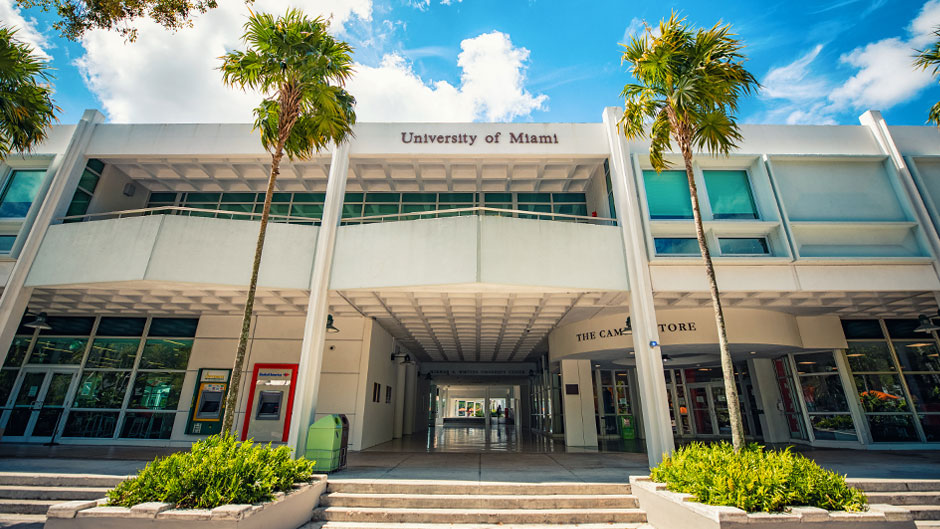Students hoping to enter the University of Miami in 2021 will not have to worry about what was once a component of their application: their standardized test scores.
University officials have decided to pilot “test optional” admission for all students applying for fall 2021, because of the cancellation of the administration of the SAT and ACT exams caused by the COVID-19 pandemic. Incoming architecture and music students already have the option of forgoing the tests, which is a burgeoning trend among colleges and universities nationally.
“We think this is the right step at this time,” said Jeffrey Duerk, provost and executive vice president for academic affairs. “By eliminating this extra obstacle at this stressful time, we hope the University of Miami will not only attract even higher quality students but relieve applicants’ anxiety about how to take these tests safely amid a global pandemic, while affirming our recognition of many forms of student excellence well beyond those of standardized tests.”
Last summer, the University decided to make applications test optional for applicants to the Frost School of Music and the School of Architecture, both of which rely on portfolios or auditions to evaluate candidates. But with the pandemic creating more hurdles for students to take the tests, the University began analyzing data on students who have been at the University for a year—and confirmed what they have long suspected: high school grade point averages (GPA) are a better predictor of success and retention than standardized test scores, said John Haller, vice president of enrollment management.
Haller noted that test optional admission is an experiment that his team will be analyzing for the next application cycle. Staff members from the University’s undergraduate admissions office will be sharing information about the change with prospective students during upcoming virtual tours, as well as on their website and through social media, Haller said.
“We’re going to do it for a year and assess the outcomes of how students who came here under test optional admission succeed at UM,” he said. “Then we’ll make recommendations to the leadership and Board of Trustees on our next steps.”
The University’s admissions officers will continue to assess applications holistically by looking at students’ high school GPA, the rigor of their high school classes, and their extracurricular activities. They also will include a new essay requirement in the application that should provide a better picture of a student’s potential in college, Haller said.
“Overall, the focus will be to try to assess a student’s resilience and personal commitment as a function of their ability to persist in college; as Hurricanes, we are both renewed and resilient,” he said.
In making tests optional, the University joins a growing number of U.S. colleges that have waived their previously required scores amid the pandemic. They include Boston University, Case Western Reserve University, Cornell University, Tulane University, and Williams College, The New York Times reports. The University of California system, which includes 10 colleges, has also decided to phase out the use of standardized tests for admissions throughout the next four years and may develop their own test as an alternative, according to Inside Higher Ed. Other universities, including Wake Forest, previously eliminated standardized tests as part of the admissions process amid growing concerns about their biases—and growing evidence that a student’s GPA, and what they do in and out of the classroom, are greater predictors of success.

